On August 18, 2019, people in Iceland gathered at site of the Okjokull Glacier, to hold a memorial for the first glacier that was lost to climate change in Iceland. According to NASA, the Okjokull melted away throughout the 20th century and finally came to its end.
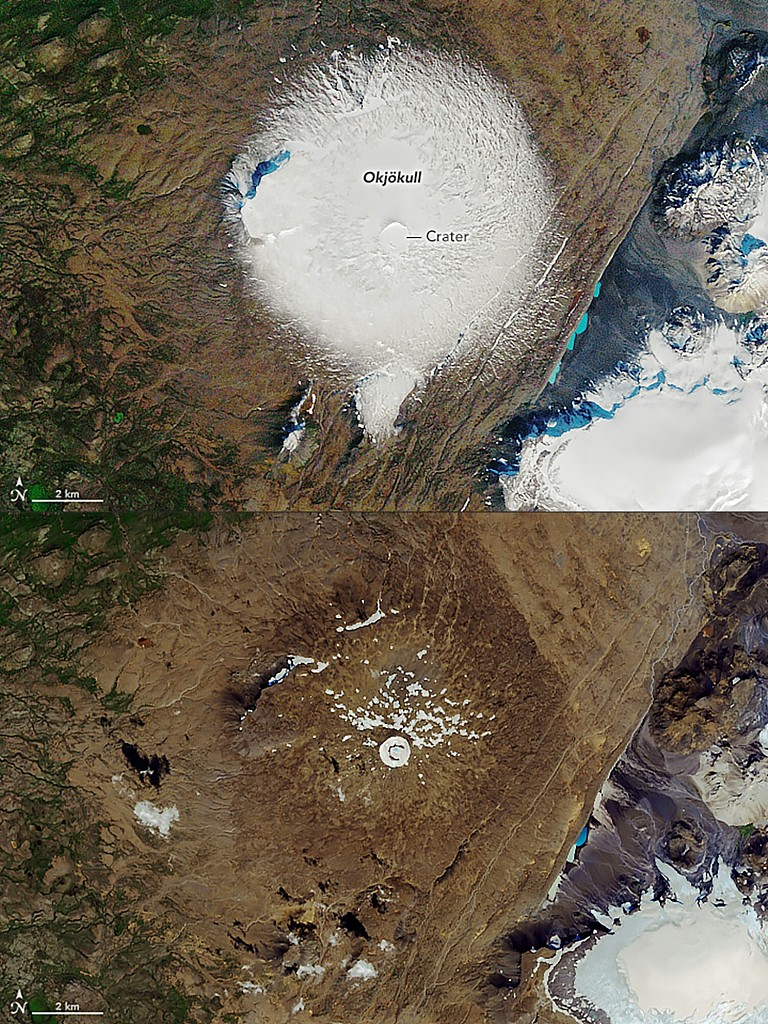
The aerial shot of Okjokull in 1986 (top) and 2019 (bottom). /VCG Photo
The aerial shot of Okjokull in 1986 (top) and 2019 (bottom). /VCG Photo
The Okjokull is not the only glacier to melt away. Due to climate change, a large number of glaciers in the world are also gradually fading away.
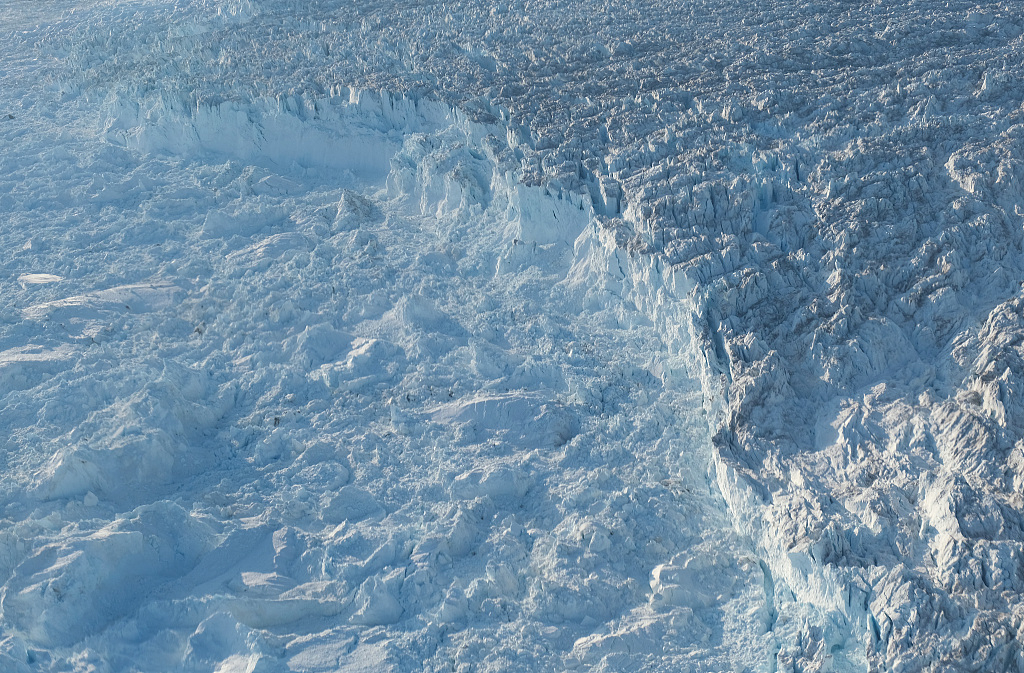
The Sermeq Kujalleq glacier, also called the Jakobshavn glacier, discharges ice into the Ilulissat Icefjord on August 04, 2019 near Ilulissat, Greenland. /VCG Photo
The Sermeq Kujalleq glacier, also called the Jakobshavn glacier, discharges ice into the Ilulissat Icefjord on August 04, 2019 near Ilulissat, Greenland. /VCG Photo
Glaciers distribute unevenly on earth. China is rich in glacier resources, with about 14.5 percent of the world's glacier areas.
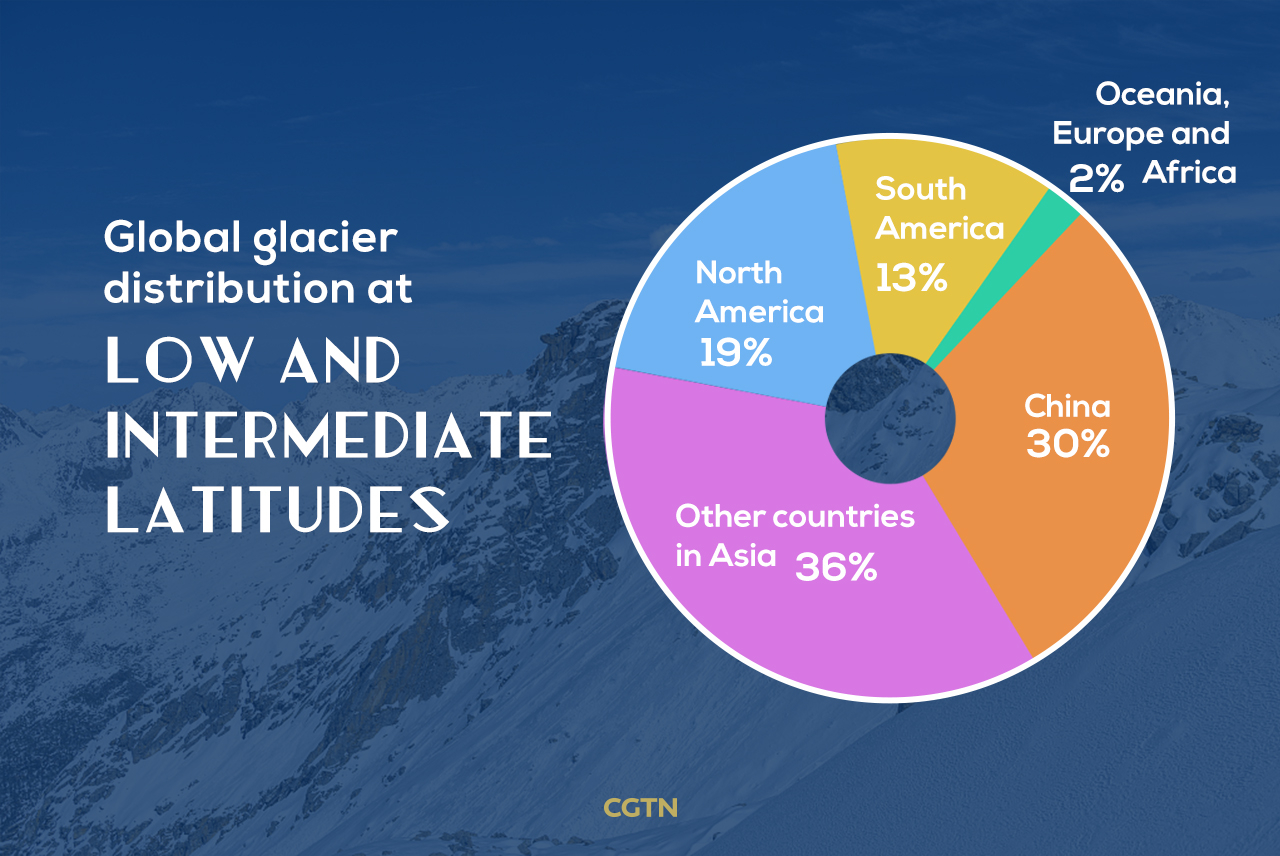
Global glacier distribution at low and intermediate latitues. /CGTN Graphic's Yin Yating
Global glacier distribution at low and intermediate latitues. /CGTN Graphic's Yin Yating
In the low and intermediate latitude areas (including equatorial, tropical and temperate zones), about 66 percent of glaciers are distributed in Asia, and almost half of them are in China. According to the Second Glacier Inventory of China in 2014, China currently has 48,571 glaciers, covering an area of 51,766 square kilometers, which is larger than three Beijing City.
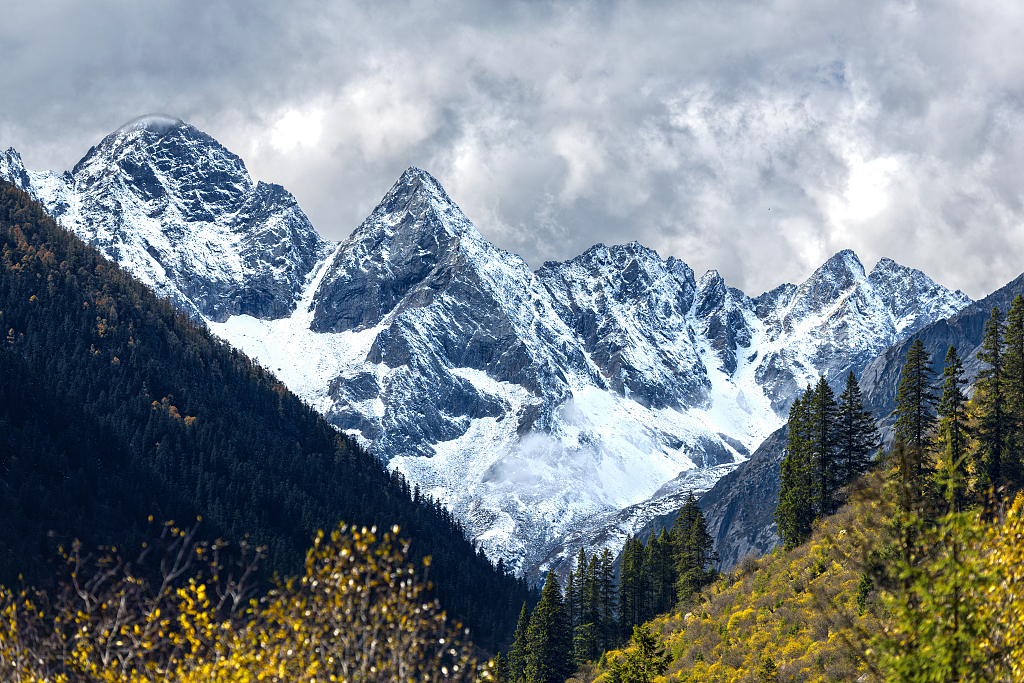
The Dagu Glacier, one of the youngest glaciers in the Heishui County of southwest China's Sichuan Province. /VCG Photo
The Dagu Glacier, one of the youngest glaciers in the Heishui County of southwest China's Sichuan Province. /VCG Photo
Glaciers play an important role in regulating the hydrology of rivers. Known as the longest inland river, the Tarim river gets the majority of its water from melting glaciers at Tianshan Mountains, Kunlun Mountains and Karakoram Mountain Range.
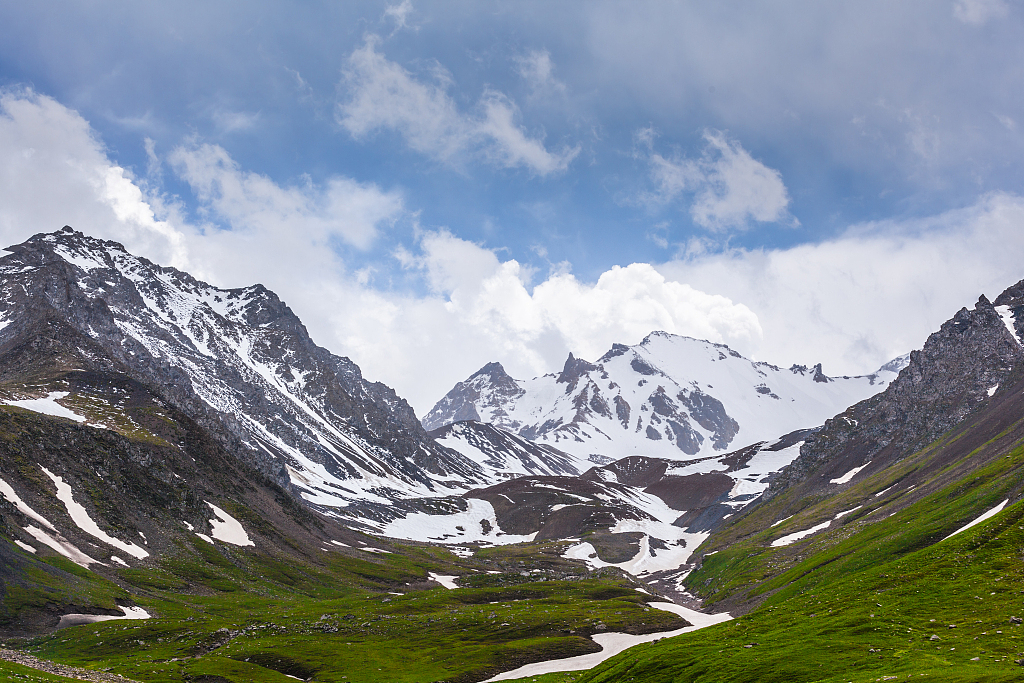
The snow-covered Tianshan Mountains. /VCG Photo
The snow-covered Tianshan Mountains. /VCG Photo
Unfortunately, glaciers in China are facing the great threat of fading as well.
From 1960s till now, about 82 percent of glaciers have shrunk in China. Among them, about 8,310 glaciers have disappeared, and the most affected area is the Tibet Autonomous Region.
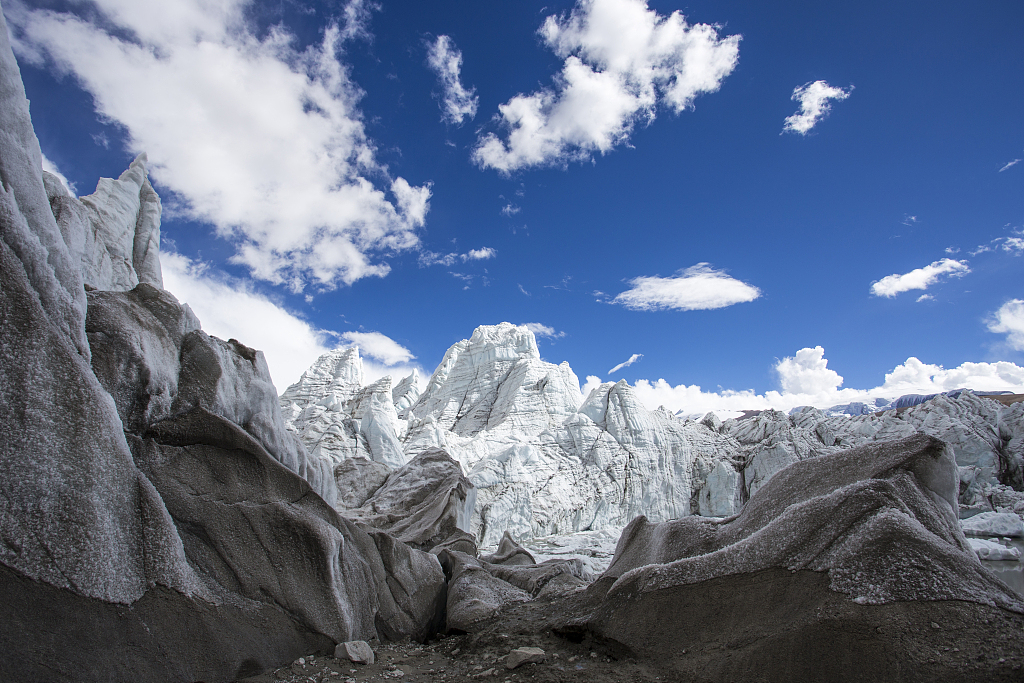
Glaciers against blue sky in southwest China's Tibet Autonomous Region. /VCG Photo
Glaciers against blue sky in southwest China's Tibet Autonomous Region. /VCG Photo
The melting glaciers are important indicators of climate change. Based on data, many famous glaciers in China, including the Baishui No.1 Glacier in Yunnan Province's Yunlong Snow Mountain and Tibet Autonomous Region's Midui Glacier, are all retreating. The famous Rongpo Glacier, which is the gateway to reach the Advanced Base Camp of Mount Qomolangma in Tibet Autonomous Region, has even shrunk by more than 90 meters vertically.
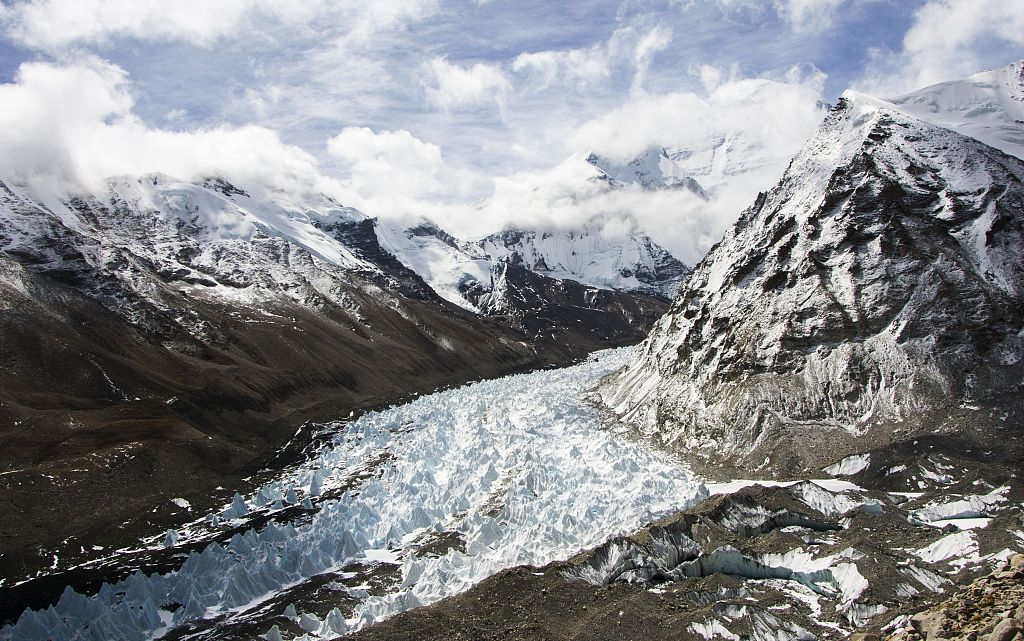
Watching the Mt. Qomolangma from the West Rongpo Glacier. /VCG Photo
Watching the Mt. Qomolangma from the West Rongpo Glacier. /VCG Photo
Scientists indicate that the accelerated melting glaciers will increase the risk of flood, mudslides and sea level increase. And some rivers, which depend on the melting glacier, risk drought in the future if these glaciers continue to melt away.
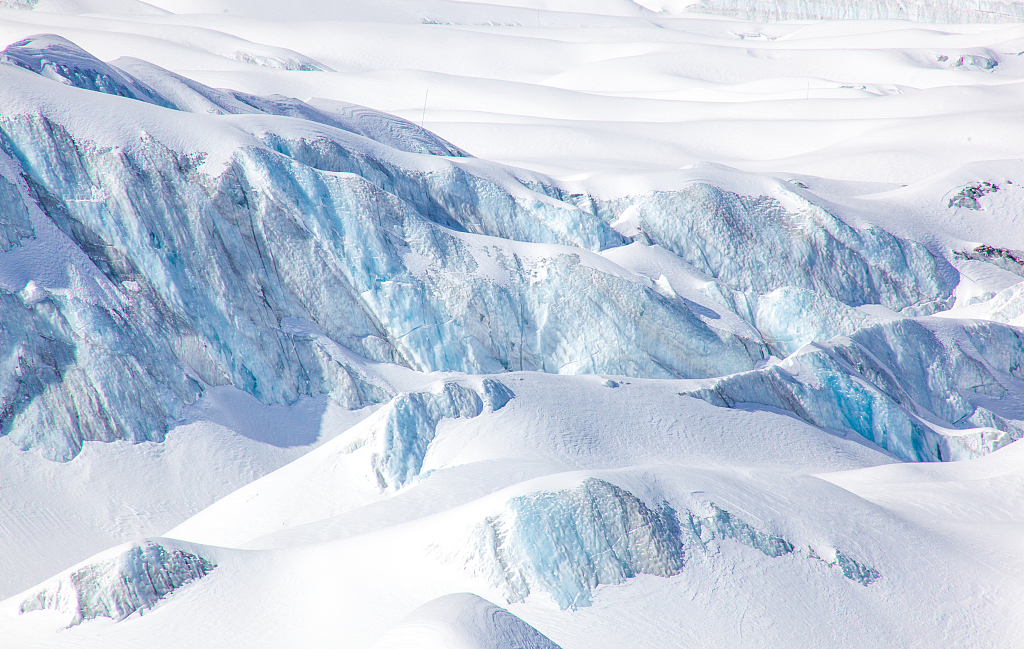
Crystal clear glaciers on Yulong Snow Mountain in southwest China's Yunnan Province.
Crystal clear glaciers on Yulong Snow Mountain in southwest China's Yunnan Province.
The fading glacier is not the only warning of global warming and climate change. During the past months, unusual weathers, floods and bushfires have all sounded the alarm on the effects of human activities on earth. Climate change has already become a topic that should not be neglected, as it's tied to the future survival of mankind.
(All images via VCG)
(If you want to contribute and have specific expertise, please contact us at nature@cgtn.com.)